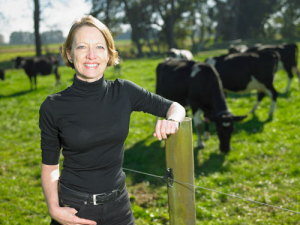This is despite the European Chemicals Agency (ECHA) saying “on the available scientific evidence, there were no grounds to classify the controversial herbicide glyphosate as a carcinogen, a mutagen or as toxic for reproduction”.
ECHA’s committee for risk assessment (RAC) concluded this after extensive evaluation of all available information. Committee chair Tim Bowmer said “RAC agreed with the German dossier submitter that glyphosate should not be classified as a carcinogen, i.e. a substance causing cancer. This conclusion was based on both the human evidence and on the weight of the evidence of all the animal studies reviewed”.
This is good news for the many farmers who rely on the herbicide for weed control, and for consumers for whom food is cheaper because of the availability of safe and effective chemicals.
But lobbyists, aided by celebrities, are running a campaign against the chemical, implying that the interpretation of the scientific evidence is flawed.
While it is true that deaths can be linked directly to pesticides, an editorial in the medical journal The Lancet last month indicated the deaths were deliberate. “Pesticides are responsible for an estimated 200,000 acute self-poisonings worldwide each year.” No estimate was made of the number of lives saved through avoidance of starvation.
The key to chemical use is, of course, “according to label instructions”. Instructions are formed after much research and with safety factors built in. When new evidence is produced, regulations are adjusted. This is what happened with the use of DDT after the release of Rachel Carson’s 1962 book Silent Spring. DDT had been used liberally as an insecticide, but indications that it had entered the food chain and was causing thinning of wild-bird egg shells and loss of bird life resulted in re-consideration of use.
Carson’s work linking DDT and bird populations has been largely disproved, but her suggestion has been taken seriously and followed: “if we are going to live so intimately with these chemicals – eating and drinking them, taking them into the very marrow of our bones -- we had better know something about their nature and power”.
The questions Carson raised have resulted in much improved regulations globally. In New Zealand the Environmental Protection Authority (EPA) is the regulatory body evaluating risk and benefits.
Last year the EPA published a review of glyphosate, concluding that, overall, glyphosate is unlikely to be genotoxic or carcinogenic to humans and does not require classification under the Hazardous Substances and New Organisms Act as a carcinogen or mutagen.
Previous debate had been inflamed by conflicting reports. In March 2015, the World Health Organisation’s cancer experts (IARC) said the substance was a probable cause of cancer. In November that year the European Food Safety Authority (EFSA) contradicted the IARC findings. This was followed in May 2016 by a joint FAO/WHO meeting on pesticide residues concluding that glyphosate is unlikely to pose a carcinogenic risk to humans from exposure through the diet.
The key to the differences in the reports boils down to level of evidence as opposed to level of risk: having the evidence that something is carcinogenic says nothing about the risk it presents.
Celebrities tweeting that glyphosate should be banned apparently don’t understand that the risk of cancer is greater from very hot caffeine drinks, burnt toast and charred barbecue offerings than food produced by farmers and growers who can read and follow instructions. They also don’t seem to understand that not using glyphosate would result in increased costs of food production.
But the real mystery is why people would believe the opinion of celebrities rather than the evidence of research.
• Jacqueline Rowarth is chief scientist for the Environmental Protection Authority, the regulatory body for hazardous substances.
















